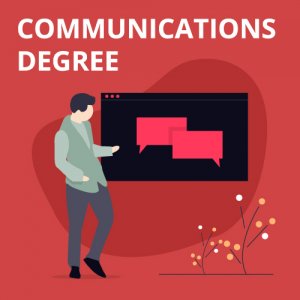What Kind of Accreditation Should My Degree Program Have?
To be sure that future employers will be interested in your degree, it is important to know that your school has the appropriate accreditation.
For any higher education discipline, particularly for Chemistry, accreditation is crucial when choosing an institution.
The college or university is eligible for financial support if the Department of Education has recognized an association that provided the accreditation.
First of all, accreditation shows that an educational institution adheres to the standards.
Secondly, the program is relevant and continues to expand in its field.
There are institutional and programmatic accreditation processes.
One is required for schools, the other for a specific discipline and degree program.
Regional Accrediting Agencies
Regional and national accreditation agencies can provide institutional accreditation.
In short, regional accreditation agencies enhance reputation and credibility.
When studying the conditions of colleges and universities, it is advisable to obtain a “stamp of approval” from one of these accreditation agencies depending on the region:
- The Higher Learning Commission
- Middle States Commission on Higher Education
- New England Association of Schools and Colleges
- Northwest Commission on Colleges and Universities
- Southern Association of Colleges and Schools Commission on Colleges
- Western Association of Schools and Colleges
National Accrediting Agencies
As regards national accreditation agencies, the situation is different.
Sometimes, an accreditation agency that specializes in a specific program is important.
Some employers require you to obtain a degree in a specific program from a national accreditation course.
But for the field of communication, this is not necessary.
Typically this program doesn’t need specific accreditation because the major is a liberal art course of study.
However, if your institution does not have national accreditation, this is not a violation of the agreement.
If the regional association recognize your program, the degree that you receive will be trustworthy for both admissions officers, and potential employers to determine accreditation status.
To determine accreditation status, you simply need to contact the chosen school.
Chiefly, the database of the Department of Education contains all accredited companies within its competence.
If you know about accreditation, you can consider several options for obtaining a degree.
What Kinds of Communication Degrees Are There?
Associate Degree in Communications
You need 2 years of coursework or 60 credits to get your communication degree.
You will study the theory of media communication and some technical skills.
This will improve your writing and speaking skills.
As a result, you will be ready for an entry-level position, as well as an opportunity to continue your studies under a four-year program.
For example, if you have an associate degree in communications, you will be able to work for radio as a radio broadcaster, or as an assistant editor for a marketing company.
What Courses Will You Take?
- Introduction to Public Relations
- Basic Composition
- Introduction to Mass Communications
- Public Speaking
- Digital Media
Bachelor in Communications
A bachelor’s degree in communication is a common requirement for those who want to work in the field of media broadcasting, journalism or marketing.
The four-year program requires 120 credits and is one of the most popular courses.
Clearly, it’s key to a wide range of professional options.
Starting with the basic theory of history and technical problems of communication, you will learn more complex disciplines including linguistics Interpersonal relationships and brand management.
To do this, you will have to work hard on your communication skills, both written and verbal.
What Courses Will You Take?
- Business Communication
- Organizational Communications
- New Media Technologies
- Technical Writing
- Media Ethics
- Current Issues in Journalism
- Public Relationships Campaign Planning
- Social Issues in Communication
What’s the Difference Between a BA and a BS in Communications?
You need a Bachelor of Arts (BA) degree If you plan to pursue a career in journalism, marketing or public relations.
In addition to your theoretical knowledge of communication theory, you will also be confronted with the study of humanities.
Bachelor of Science (BS) specializes in science and technology for modern communication.
It is ideal for future work as a broadcast technique or as a sound engineer.
Master in Communications
A Master’s degree is more specialized than a Bachelor’s degree because it opens up new career paths.
This is exactly what you need if you improve your technical skills and are interested in doing great research in your field under the supervision of a mentor.
And in order to teach in the field of communication or media, in addition to a master’s degree, it is necessary to obtain a teaching certificate.
It also applies to those who want to become university professors.
At the same time, you can continue to receive your Ph.D. in the field.
In 2 years of Master’s degree program, you will improve your professional skills and become more competitive in the labor market.
It is important to understand what your career path requires because higher education requires time and cost.
Maybe a special degree will help you get a promotion or raise your salary.
Some employers provide educational support If you are interested in moving forward.
What Courses Will You Take?
- Strategic Communication and Ethics
- Communication Research Methods
- Leadership and Communication
- Survey Design and Analysis in Communication
- Media, Policy, and Politics
- Marketing and Statistical Analysis
- Digital Culture and Communication
What’s the Difference Between the MA and MS in Communications?
The Master of Arts (MA) in Communication is the most popular degree.
The program offers theoretical and practical use of communication in real situations.
A Masters of Science (MS) in Communication provides attention to scientific methods of research design analysis.
In addition, you will use statistics in different areas of communication and perform some technical tasks.
Depending on the institute, some programs offer a second MBA degree if you are interested in a career in business communication.
Ph.D. in Communication
A doctoral degree allows you to undertake research and write a thesis on a topic of interest to you.
You will also bring new ideas in the field of communication by conducting targeted research using traditional experience.
You’ll always be guided by a teacher during the process of research.
The Ph.D. level enables university teaching in the chosen field of media journalism and public relations, for example.
In addition, you will be able to address issues of journalistic independence, brand-consumer relations, privacy protection, working in analytical centers, research institutes or public services.
What Kind of Licensing or Certification Do You Need?
With a degree in communication for the media, you have access to a wide range of professional opportunities.
So you don’t even need to have a professional license to do that.
However, at least it will improve your skills and relevance for employers.
Sometimes the below-mentioned certifications are mandatory.
Technical Certification
A broadcaster may need to demonstrate your experience and technical knowledge in this field to work as a broadcaster.
The broadcasting profession is closely linked to telecommunications, computer technology, and social media in the modern world.
A special certification is required to use the resonance deck, camera or database.
The opinion of professors and professionals in this field will help to accumulate knowledge and progress in the future.
Teaching Certification
In order to teach radio broadcasting, journalism or other subjects of communication in private and public institutions of high education, you must pass the state licensing exam in your state.
At least you must have a bachelor’s degree, sometimes a master’s degree.
A bachelor’s degree program can complete a teacher certification programme and become an education specialist.
After that, there’s a way to get a license.
If you have not been trained in communication teaching, you will most likely need to complete an alternative teacher certification program.
It will allow you to take a licensing exam like PRAXIS or others.
You need to visit the Department of Education in your state for more information.
Public Relations Certifications
In the field of public relations, you won’t need a special certification or license.
But this will be your advantage in the labor market.
The American Society for Public Affairs is a leading professional community of public relations professionals that provides accreditation in the field of public relations.
This requires passing an exam for knowledge of media ethics, management, and other necessary skills.
You can choose any direction, but before you do, make sure that the licensing and certification program is recognized by an authoritative association.
Most often, to get a certificate, you have to complete a certain educational program.
Popular Degree Programs
What Can You Do With This Degree?
A degree in communications gives a wide range of opportunities in broadcasting, media or public relations.
For more details see the list of the best jobs in the field:
- Announcers
- Art Directors
- Broadcast and Sound Engineering Technicians
- Editors
- Film and Video Editors and Camera Operators
- Interpreters and Translators
- Photographers
- Reporters, Correspondents, and Broadcast News Analysts
- Technical Writers
- Writers and Authors
How Much Can You Make With This Degree?
Your degree affects your earning potential as much as your ambitions and distinctive features.
Average salaries are similar in most fields related to communications and media.
Depending on your ingenuity and personal qualities, you may have professional growth in your field.
The greatest opportunities are in the areas of publishing and film production.
According to the Bureau of Labor Statistics, in 2019 employers offer the following basic wages for the best jobs in your field:
- Announcers – Mean annual wage of $31,990
- Reporters, Correspondents, and Broadcast News Analysts — Mean annual wage of $43,490
- Photographers — Mean annual wage of $34,000
- Broadcast and Sound Engineering Technicians — Mean annual wage of $43,660
- Interpreters and Translators — Mean annual wage of $49,930
- Film and Video Editors and Camera Operators — Mean annual wage of $58,990
- Editors — Mean annual wage of $59,480
- Public Relations Specialists — Mean annual wage of $60,000
- Writers and Authors — Mean annual wage of $62,170
- Technical Writers — Mean annual wage of $71,850
What Professional Associations or Societies Should You Join?
As mentioned above, your ability to stand out from the crowd influences communication prospects.
This can be achieved by establishing and maintaining personal relationships.
The communication is necessary for career advancement and directly in interaction with other people.
Interaction is the basis of the profession for the transfer of skills in radio, marketing, public relations, and so on.
According to your academic or professional direction, you can choose professional associations to establish contacts and find new opportunities.
Here are some of the largest associations in the field of communication.
IEEE Professional Communication Society (IEEE)
The IEEE is the largest association that deals with standards and technologies in the field of education research and seminars in the field of electronic communications.
It has more than 423 members all over the world and is a reliable resource for planners, engineers and information technologists in more than 160 countries.
International Association for Media and Communication Research (IAMCR)
IAMCR is one of the world’s leading professional communications and media organizations.
It focuses on and encourages global inclusiveness as part of a “best practice of critical thinking” in communication.
International Communication Association (ICA)
It’s a major academic association.
This includes scientists who teach in the field of human and indirect communication.
ICA currently has more than 4,500 members in 80 countries.
It’s also a non-governmental association (NGO) linked to the United National Assembly.
National Communication Association (NCA)
The largest national organization is the NCA.
It develops communication science and researches sociology and aesthetics by studying the consequences of communication.
With the help of NGK, scientists and practitioners develop and support their research in the profession of teaching.
In addition, participants have access to 11 scientific journals, a wide range of information resources and an annual conference for a large number of people.
Public Relations Society of America (PRSA)
PRSA is the largest public relations association in the world.
As a resource, it provides participants with information on current issues of popular topics and useful strategies in the profession.
Summary
Now you have a more particular vision of your design career.
Choose your own path and start applying your talents in work.
The degree in art and design allows you to choose one or more interesting directions.
It’s a great opportunity to realize your communicative potential and express unconventional thinking.
See More Degrees
What can you do with a degree in...







